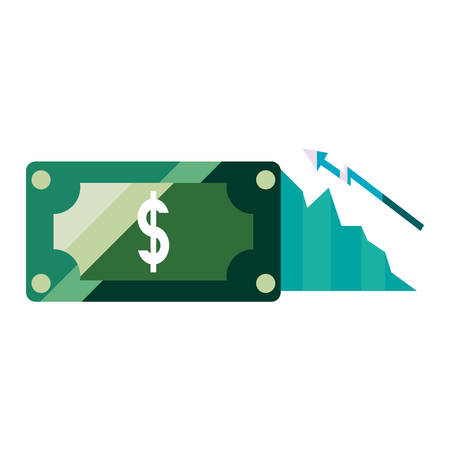1. Understanding Emergency Funds
An emergency fund is a dedicated pool of money set aside to cover unexpected financial situations. It acts as a financial safety net, protecting you from unforeseen expenses such as medical emergencies, job loss, car repairs, or urgent home maintenance. Without an emergency fund, you may have to rely on high-interest debt like credit cards or personal loans, which can jeopardize your long-term financial stability.
What Is the Purpose of an Emergency Fund?
The primary goal of an emergency fund is to provide immediate access to cash when unexpected expenses arise. This ensures that you dont have to liquidate investments or take on unnecessary debt. Here are some key purposes:
- Financial Security: Helps maintain stability during sudden financial disruptions.
- Avoiding Debt: Reduces reliance on high-interest credit options.
- Protecting Investments: Prevents the need to sell assets at unfavorable market conditions.
- Peace of Mind: Eliminates stress related to financial uncertainty.
Why Is an Emergency Fund Essential for Financial Stability?
An emergency fund is crucial because life is unpredictable. Having a reserve of cash allows you to handle emergencies without derailing your financial goals. Below is a comparison of financial scenarios with and without an emergency fund:
| Scenario | With Emergency Fund | Without Emergency Fund |
|---|---|---|
| Unexpected Medical Bill | Pays with savings, avoids debt | Might use credit card and incur interest |
| Losing a Job | Covers living expenses while job hunting | Might struggle with bills or withdraw from investments |
| Major Car Repair | Pays immediately without financial strain | Might delay repair or take out a loan |
| Sustained Market Downturn | No need to sell investments at a loss | Might be forced to cash out investments prematurely |
How Much Should You Save in an Emergency Fund?
The amount needed varies based on individual circumstances such as income stability, monthly expenses, and dependents. A general recommendation is:
- (1) 3-6 Months of Expenses: Ideal for most individuals with stable jobs.
- (2) 6-12 Months of Expenses: Recommended for freelancers, business owners, or those in volatile industries.
- (3) More than 12 Months: Suitable for retirees or individuals with irregular income sources.
Your emergency fund should be kept in a highly liquid and easily accessible account, such as a high-yield savings account. This ensures that funds are readily available when needed without penalties or delays.
2. How Emergency Funds Mitigate Investment Risks
Having an emergency fund plays a crucial role in protecting your investments, especially during market downturns or personal financial crises. When unexpected expenses arise, such as medical bills, job loss, or urgent home repairs, having readily available cash reserves can prevent you from being forced to sell investments at unfavorable times.
Why Forced Asset Liquidation Can Be Harmful
Selling investments under pressure can lead to significant financial setbacks. Here’s why:
| Scenario | Impact of Forced Liquidation |
|---|---|
| Market Downturn | You may have to sell stocks or assets at a loss when prices are low. |
| Tax Consequences | Unexpected capital gains taxes could reduce your overall wealth. |
| Long-Term Growth Loss | Losing compounding growth potential by selling assets too soon. |
| Panic Selling | Makes it harder to recover financially when the market rebounds. |
The Role of Emergency Funds in Risk Management
An adequately funded emergency reserve ensures that you don’t have to liquidate investments prematurely. Instead, you can rely on your cash reserves to cover unexpected expenses while allowing your portfolio to remain intact and grow over time.
(1) Provides Immediate Liquidity
Your emergency fund acts as a buffer, giving you access to cash without disrupting your investment strategy.
(2) Helps Maintain Long-Term Investment Goals
Avoiding forced sales allows your assets to continue appreciating in value, aligning with your long-term financial objectives.
(3) Reduces Emotional Investing Decisions
A well-funded emergency reserve minimizes panic-driven decisions, enabling you to stay invested even during economic uncertainties.
(1) Example: Avoiding Stock Sales During a Market Crash
If the stock market drops suddenly and you need funds for an emergency expense, having cash reserves prevents you from selling stocks at a loss.
(2) Example: Covering Medical Bills Without Selling Investments
If an unexpected medical expense arises, using emergency savings instead of withdrawing from retirement accounts helps maintain tax advantages and long-term growth.
An emergency fund serves as a financial safety net, ensuring that your investment strategy remains intact even in challenging times. By preparing in advance, you can mitigate risks and protect your wealth from unnecessary losses.

3. Determining the Right Amount for Your Emergency Fund
Building an emergency fund is essential, but how much should you set aside? The right amount varies based on your personal financial situation. Several factors influence the ideal size of your cash reserves, including income stability, monthly expenses, and financial obligations. Lets break down these key considerations.
Income Stability
Your job security and income consistency play a crucial role in determining your emergency fund size. If you have a stable salary with minimal risk of job loss, you may need a smaller reserve. However, if your income fluctuates or youre self-employed, a larger cushion is advisable.
(1) Stable Employment
If you have a steady job with low risk of layoffs, consider setting aside at least 3 to 6 months’ worth of living expenses.
(2) Freelance or Commission-Based Income
If your income is inconsistent, aim for 6 to 12 months worth of expenses to cover potential gaps between paychecks.
Monthly Expenses
Your regular expenses dictate the minimum amount you should save. Essential costs like rent, utilities, groceries, and insurance should be covered by your emergency fund.
| Expense Category | Examples |
|---|---|
| Housing | Rent/Mortgage, Utilities |
| Food | Groceries, Dining Out |
| Transportation | Car Payments, Gas, Public Transit |
| Healthcare | Insurance Premiums, Medical Bills |
| Debt Payments | Credit Cards, Loans |
| Other Essentials | Childcare, Subscriptions |
Financial Obligations
If you have significant debt or dependents relying on your income, your emergency fund should be larger to cover unexpected events.
(1) High Debt Levels
If you carry substantial debt payments each month, ensure your emergency fund can cover those obligations during financial hardship.
(2) Family Responsibilities
If you support dependents—such as children or elderly parents—you may need extra savings to ensure their well-being in case of an emergency.
Calculating Your Ideal Emergency Fund Amount
A simple way to determine your target amount is by calculating your essential monthly expenses and multiplying them by the recommended number of months based on your situation.
| Your Situation | Recommended Savings |
|---|---|
| Salaried Employee with Job Stability | 3-6 months of expenses |
| Self-Employed or Irregular Income | 6-12 months of expenses |
| Main Provider for Family with Dependents | Aim for 9-12 months of expenses |
| Carries Significant Debt Burden | Add extra coverage for loan payments |
The right emergency fund amount depends on your unique circumstances. Assessing your financial stability and obligations will help you determine how much to set aside to protect yourself from unexpected setbacks.
4. Where to Keep Your Emergency Fund
Choosing the right place to store your emergency fund is crucial for balancing accessibility, security, and potential growth. Since these funds need to be readily available in case of unexpected expenses, they should be kept in liquid and low-risk accounts. Below, we’ll explore some of the best options.
High-Yield Savings Accounts
A high-yield savings account is a great option for storing your emergency fund because it offers easy access while earning interest at a higher rate than traditional savings accounts.
Benefits of High-Yield Savings Accounts
- Competitive interest rates help grow your savings over time.
- Funds remain easily accessible through online banking and transfers.
- Low risk since deposits are typically insured by the FDIC.
Money Market Accounts
Money market accounts (MMAs) combine features of both savings and checking accounts, offering a balance between liquidity and modest interest earnings.
Why Consider a Money Market Account?
- Slightly higher interest rates compared to standard savings accounts.
- Limited check-writing or debit card access for emergencies.
- FDIC insurance protection for added security.
Other Liquid Assets
If you prefer diversification or additional flexibility, there are other liquid assets that can serve as emergency fund storage options.
(1) Certificates of Deposit (CDs)
- A CD can offer higher interest rates but comes with early withdrawal penalties.
- Laddering CDs can provide staggered access to funds while maximizing returns.
(2) Treasury Bills (T-Bills)
- T-Bills are government-backed securities with short-term maturity dates.
- Their safety and predictable returns make them an attractive option.
(3) Cash Management Accounts
- A cash management account (CMA) offers liquidity while sometimes providing better interest rates than traditional savings accounts.
- CMA providers often integrate brokerage features for added convenience.
Comparison of Emergency Fund Storage Options
| Option | Main Benefit | Potential Drawbacks |
|---|---|---|
| High-Yield Savings Account | Easily accessible with competitive interest rates | Might have withdrawal limits per month |
| Money Market Account | Slightly higher rates with check-writing options | Might require a higher minimum balance |
| Certificates of Deposit (CDs) | Bigger returns if held until maturity | Lack of immediate access due to early withdrawal penalties |
| Treasury Bills (T-Bills) | Sovereign-backed security with guaranteed returns | Maturity period may restrict instant liquidity |
| Cash Management Accounts (CMAs) | A blend of liquidity and investment-like features | Might come with fees or variable interest rates |
Selecting where to keep your emergency fund depends on your financial goals, risk tolerance, and how quickly you may need access to the money. Many people use a combination of these options to ensure both security and growth potential while maintaining liquidity.
5. Integrating Emergency Funds into a Broader Financial Plan
Building an emergency fund is not just about having cash set aside for unexpected expenses; it plays a critical role in your overall financial strategy. A well-structured cash reserve can enhance your investment approach, reduce financial stress, and provide flexibility during uncertain times.
How Emergency Funds Strengthen Your Financial Strategy
Integrating an emergency fund into your broader financial plan ensures that you are prepared for unforeseen circumstances while maintaining a strong investment portfolio. Here’s how it supports your financial resilience:
(1) Prevents the Need to Liquidate Investments
Market conditions fluctuate, and selling investments during downturns can lock in losses. Having an emergency fund allows you to cover urgent expenses without disrupting your long-term investment goals.
(2) Provides Liquidity for Unplanned Expenses
An emergency fund acts as a financial cushion for medical bills, home repairs, or job loss, ensuring that you don’t have to rely on high-interest debt or dip into retirement savings.
(3) Enhances Risk Management
By maintaining adequate cash reserves, you can take on appropriate risk levels in your investment portfolio without worrying about short-term market volatility impacting your ability to cover essential expenses.
Determining the Right Amount for Your Emergency Fund
The amount you need in an emergency fund depends on various factors such as income stability, fixed expenses, and risk tolerance. Here’s a general guideline:
| Factor | Recommended Cash Reserve |
|---|---|
| Single Income Household | 6-12 months of living expenses |
| Dual Income Household | 3-6 months of living expenses |
| High-Risk Profession or Business Owner | 12+ months of living expenses |
| Retirees | 1-2 years of essential expenses |
Where to Keep Your Emergency Fund?
Your emergency savings should be easily accessible but also earn some interest. Consider these options:
(1) High-Yield Savings Accounts
A safe option that offers liquidity while earning more interest than traditional savings accounts.
(2) Money Market Accounts
A balance between accessibility and modest returns, suitable for short-term cash reserves.
(3) Short-Term Certificates of Deposit (CDs)
If you don’t anticipate needing the funds immediately, short-term CDs can offer slightly higher returns with minimal risk.
Balancing Cash Reserves and Investments
While maintaining a cash reserve is crucial, holding too much cash can limit potential growth from investments. The key is to find a balance:
- Keep enough in liquid assets to cover emergencies.
- Avoid overfunding the emergency account at the expense of long-term investments.
- Reassess and adjust your cash reserves periodically based on life changes.
A well-planned emergency fund not only safeguards you against financial surprises but also strengthens your overall investment strategy by providing stability and confidence in managing risks effectively.


